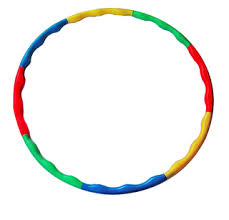记忆方法
1. loop => hoop.
2. hook + loop => hoop.
2. hook + loop => hoop.
中文词源
hoop 箍,环
来自古英语hop,环形物体,来自Proto-Germanic*hopa,弯,转,弧,来自PIE*kab,弯,转,词源同cubit,cup,cooper.引申词义箍,环。
英语词源
- hoop (n.)
- late 12c., probably from an unrecorded Old English *hop, from Proto-Germanic *hopa-, a Low German-Frisian word (cognates: Old Frisian hop, Middle Dutch and Dutch hoep "hoop," Old Norse hop "a small bay"). As something someone jumps through (on horseback) as a circus trick, by 1793. Figurative use of jump through hoops by 1917. The verb is from mid-15c. Hoop-petticoat is attested from 1711. As a surname, Hooper, literally "maker of hoops" is early 13c.
权威例句
- 1. The wooden tub is fitted with the iron hoop.
- 木盆都用铁箍箍紧.
- 2. The acrobat could bend himself into a hoop.
- 这个杂技演员可以把身体蜷曲成圆形.
- 3. The child was rolling a hoop.
- 那个孩子在滚铁环.
- 4. " Bought it off'n Ben Rogers two weeks ago for a hoop - stick. "
- “ 两星期前用一根推铁环的棍子和贝恩-罗杰换的. ”
- 5. A hula hoop can be spun around the body.
- 呼啦圈可绕着身子转.

